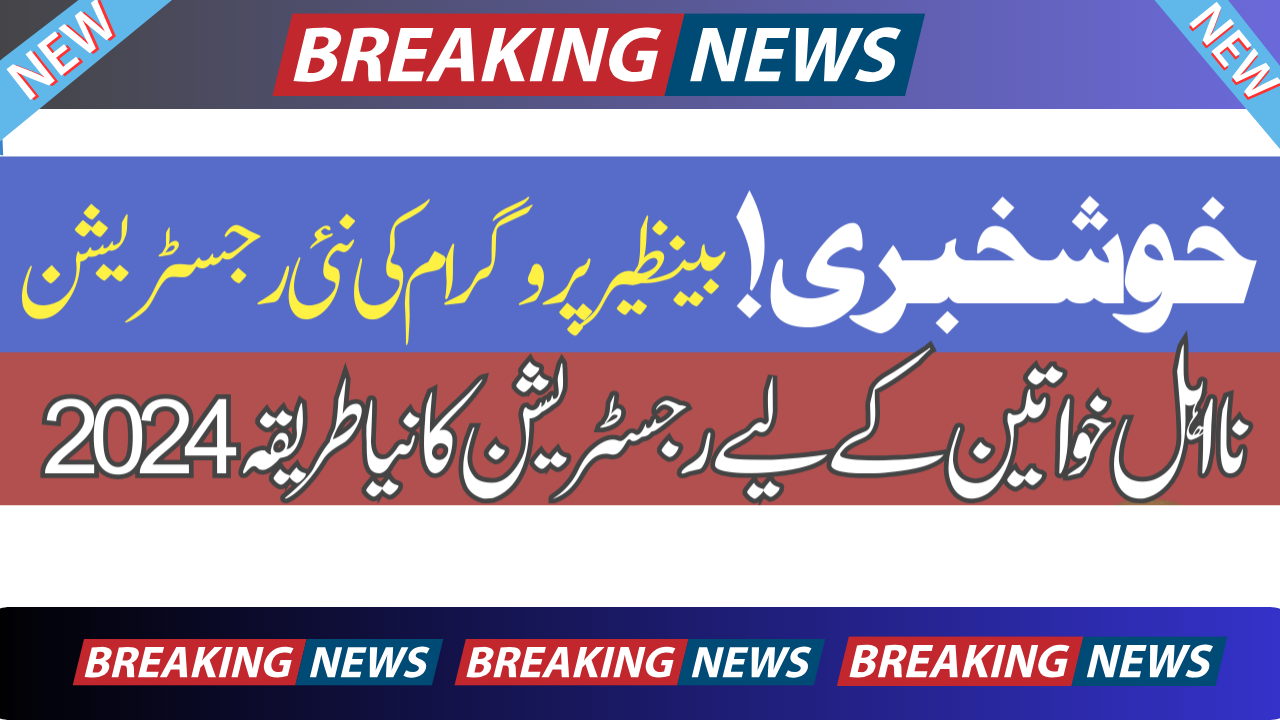BISP 8171: New Registration Method for Ineligible Women
The Benazir Income Support Programme (BISP) has been a cornerstone of social protection in Pakistan since its inception in 2008. With the aim of alleviating poverty and supporting the most vulnerable segments of society, BISP has provided financial assistance to millions of low-income families, primarily focusing on women. However, despite its extensive reach, certain eligible women have remained outside the safety net due to various challenges in the registration process. To address this, the BISP administration has introduced a new registration method for ineligible women in 2024, under the BISP 8171 initiative.
Understanding BISP 8171
BISP 8171 is an SMS-based service that allows beneficiaries to check their eligibility status and access other services related to the Benazir Income Support Programme. The number 8171 has become synonymous with ease of access to BISP services, offering a direct line for inquiries and updates. The new registration method builds upon this platform, aiming to streamline the process for women who have previously faced barriers in accessing BISP benefits.
Challenges Faced by Ineligible Women
Several factors have historically contributed to the exclusion of eligible women from the BISP programme. These include lack of awareness, difficulty in accessing registration centres, documentation issues, and administrative errors. In rural and remote areas, women often face additional hurdles such as limited mobility, social constraints, and lack of access to information technology. As a result, many deserving women have remained unregistered and unable to receive the financial assistance they need.

https://8171ehsaastraking.com/bisp-8171-check-online/
The New Registration Method
The new registration method introduced in 2024 focuses on simplifying the process and making it more inclusive. The key components of this method are as follows:
- Mobile Registration Units: To reach women in remote and underserved areas, BISP has deployed mobile registration units. These units travel to various localities, providing on-the-spot registration services. Equipped with necessary technology and trained staff, these units ensure that women can register without the need to travel long distances.
- Community Outreach Programmes: BISP has intensified its community outreach efforts to raise awareness about the new registration process. Through collaboration with local NGOs, community leaders, and women’s groups, BISP is disseminating information and encouraging women to come forward and register. These outreach programmes also provide assistance with required documentation and guide women through the registration process.
- Simplified Documentation Requirements: Recognising that documentation issues have been a significant barrier, BISP has simplified the requirements for registration. Women can now register with minimal documentation, reducing the burden of obtaining and submitting multiple forms of identification. This change is expected to particularly benefit women in rural areas who may not have easy access to official documents.
- Digital Registration Platforms: In addition to mobile units, BISP has launched an online registration platform accessible via smartphones and computers. This platform allows women to register from the comfort of their homes, with step-by-step guidance available in multiple languages. The online system is integrated with the National Database and Registration Authority (NADRA) to verify information and ensure a smooth registration process.
- Enhanced Customer Support: To assist women facing difficulties with registration, BISP has enhanced its customer support services. A dedicated helpline and support centres are available to provide guidance and resolve issues related to the registration process. Trained staff are available to answer queries, assist with technical problems, and provide information on the status of applications.

https://8171ehsaastraking.com/8171-ehsaas-kafalat-and-bisp-payments/
Benefits of the New Method
The introduction of the new registration method is expected to bring several benefits:
- Increased Inclusion: By reaching out to underserved areas and simplifying the registration process, BISP aims to include more eligible women in its programme. This will ensure that financial assistance reaches those who need it the most, reducing poverty and improving livelihoods.
- Empowerment of Women: By providing direct access to financial assistance, BISP empowers women economically. This empowerment has a ripple effect, leading to better health, education, and overall well-being for families.
- Improved Efficiency: The use of digital platforms and mobile units increases the efficiency of the registration process. Real-time data verification and processing reduce the chances of errors and delays, ensuring timely disbursement of benefits.
- Greater Transparency: The new method enhances transparency in the registration process. With digital records and integrated systems, the potential for fraud and mismanagement is minimised, fostering trust in the programme.
https://8171ehsaastraking.com/bisp-kafalat-8171-program-3/
Conclusion
The BISP 8171 new registration method for ineligible women in 2024 represents a significant step forward in Pakistan’s social protection efforts. By addressing the challenges that have excluded eligible women in the past, BISP is making strides towards a more inclusive and effective programme. The combination of mobile registration units, community outreach, simplified documentation, digital platforms, and enhanced customer support is expected to transform the registration landscape, ensuring that no deserving woman is left behind. As these efforts continue to unfold, the positive impact on poverty alleviation and women’s empowerment will become increasingly evident, contributing to the overall development of the nation.
